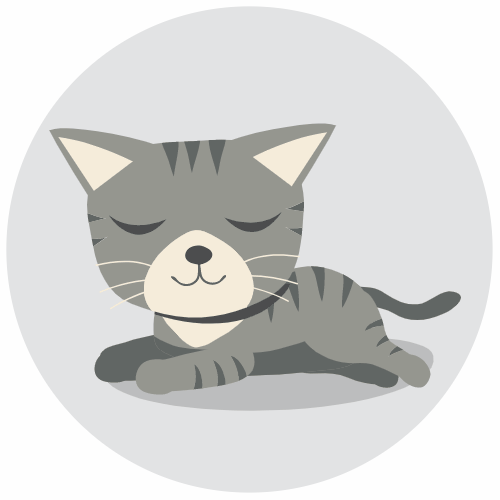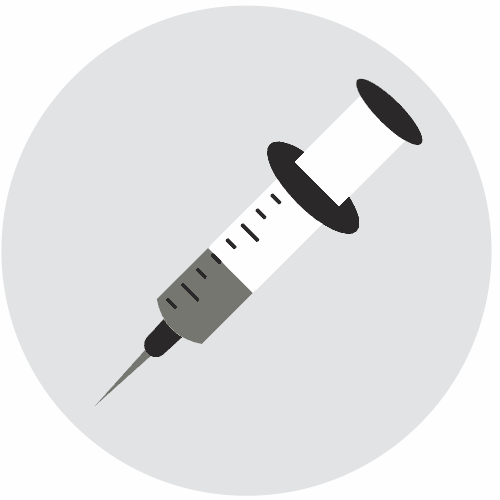The veterinarians at Laurel Veterinary Clinic in Broomfield, CO customize puppy and kitten care plans, exams, and vaccines to meet the needs of your new pet’s health and lifestyle. For puppies and kittens, we recommend an initial exam, as well as an additional physical exam with every vaccine and booster administered. During this series of exams, your pet’s veterinarian will follow the growth and development of your new furry family member while ensuring their immunity to life-threatening diseases.
Initial Exam and Vaccine Schedule
When you first bring home your new puppy or kitten, we suggest scheduling an initial examination as soon as possible. This will allow us to establish their care and create a plan for their future health. The puppy and kitten exam series will help to socialize them with new people, sights, and smells, setting them up for success in their new life.
Exam One
We recommend bringing your pet in to see us as soon as they join your family, which is often around eight weeks of age.
Kitten Care:
- FVRCP Vaccine #1
- Deworming #1
Puppy Care:
- DA2PP Vaccine #1
- Deworming #1
Exam Two
We recommend a recheck exam for pets, usually when they are around twelve weeks old.
Kitten Care:
- FVRCP Vaccine #2
- Deworming #2
Puppy Care:
- DA2PP Vaccine #2
- Leptospirosis Vaccine #1
- Bordetella Vaccine #1
- Deworming #2
Exam Three
The next exam takes place when your pet is about sixteen weeks old. The veterinarian will assess their growth and health, finalize their immunizations, and begin discussing the next steps in your pet’s healthcare.
Kitten Care:
- FVRCP Vaccine #3
- FeLV Vaccine
- Rabies Vaccine
Puppy Care:
- DA2PP Vaccine #3
- Leptospirosis Vaccine #2
- Bordetella Vaccine #3
- Rabies Vaccine

Spay and Neuter
Depending on the breed and age of your pet, your veterinarian will suggest a plan on when the most beneficial time is to spay or neuter them. This discussion usually takes place during their final puppy or kitten exam. We are more than happy to answer any questions you have or discuss the procedure at an earlier or later time.
Puppy and Kitten FAQs & Tips
How do I set a potty training schedule?
Be sure to let your puppy out to void at the following times to encourage voiding at appropriate times:
- First thing in the morning
- Last thing at night
- After spending time in a crate
- Upon waking up from a nap
- After eating or drinking
- If time between potty breaks exceeds more than 2-4 hours
How do I crate train my puppy?
- Dogs like clean “home” areas and are less likely to have accidents if they are in a crate when you are not home
- Place the crate near an exterior door and bring them outside as soon as possible after your dog has been crated for a long period of time
- An appropriately-sized crate will be big enough for your puppy to stand up, turn around, and lay down, but not big enough for them to have a separate area for accidents
How do I reinforce behavior?
- Don’t scold your puppy for having an accident
- Praise and reward your puppy with treats, pets, and attention when they perform a wanted behavior
Puppy Behavior
Chewing behavior in puppies:
- Chewing is a calming mechanism for puppies and should be allowed
- Keep chewing toys around the house and praise your puppy when they choose to chew on toys instead of household items and objects
How can I stop my puppy from barking?
- Scolding your puppy when barking can actually worsen the behavior
- Ignore barking and praise quiet behavior
- Training your dog to sit helps to fight against impulsive barking when they want something
How do I stop my puppy from begging?
- Feed them first before sitting down to eat to fulfill their appetite
- Make a “go-to” spot for your puppy near the table where they can relax while you eat
- Praise your puppy with treats away from the table when they don’t beg
Puppy Nutrition
How often should I feed my puppy?
- At 6-12 weeks old, feed four times a day
- At 3-6 months old, feed three times a day
- At 6-12 months old, feed two times a day
- At 1+ years old, feed two half-portions a day
How to choose the right food:
- Look for AAFCO-approved food
- Avoid raw or boutique foods
- A well-balance diet should include grains
- Look for age- and health-specific formulas
- Ask your veterinarian for specific recommendations for your pet
Harmful foods to avoid feeding your puppy/dog:
- Dairy
- Chocolate
- Grapes
- Sugary food, snacks, or desserts
- Many household plants
What should I buy to prepare for my kitten?
- Scratching posts
- Litter boxes and litter – one per cat, plus an additional box
- Cat carriers
- Food and water bowls
- Stain and odor remover
Prevent your kitten from accessing dangerous household items, such as:
- Toxic plants
- Cleaners and sprays
- Dog food
How can I make my kitten comfortable?
- Offer comfortable places for laying/sleeping
- Provide cat trees and comfortable bedding
- Make sure to groom often to prevent matted fur
- Spray pheromone products in new environments before introducing
Kitten Activity and Exercise
Benefits of playing with your kitten:
- Playing with your kitten strengthens your bond
- Exercise allows them to release energy that could otherwise lead to unwanted behaviors
- Builds comfort and trust within a new environment
How to play with a kitten:
- Offer balls, jingle toys, anything on a string, and cotton chew toys
- Avoid playing with your hands to avoid unwanted behaviors and injury as your kitten grows older
HOW OFTEN SHOULD I PLAY WITH MY KITTEN?
- Be sure to offer at least 20 minutes of play per day
- Set aside at least two times a day to play with your kitten – preferably early morning and late night
Kitten Nutrition
How often should I feed my kitten?
- If feeding wet food only, feed at least four times a day
- If feeding wet and dry food, leave dry food available all day and offer wet food twice a day
How to choose the right food:
- We recommend feeding at least a small amount of wet food each day in addition to dry food
- Look for AAFCO-approved food
- Look for age- and health-specific formulas
- Ask your veterinarian for specific recommendations for your pet
Harmful foods to avoid feeding your kitten/cat:
- Raw meats
- Eggs
- Raw fish
- Dairy
- Chocolate
- Grapes
- Sugary food, snacks, or desserts
- Many household plants





